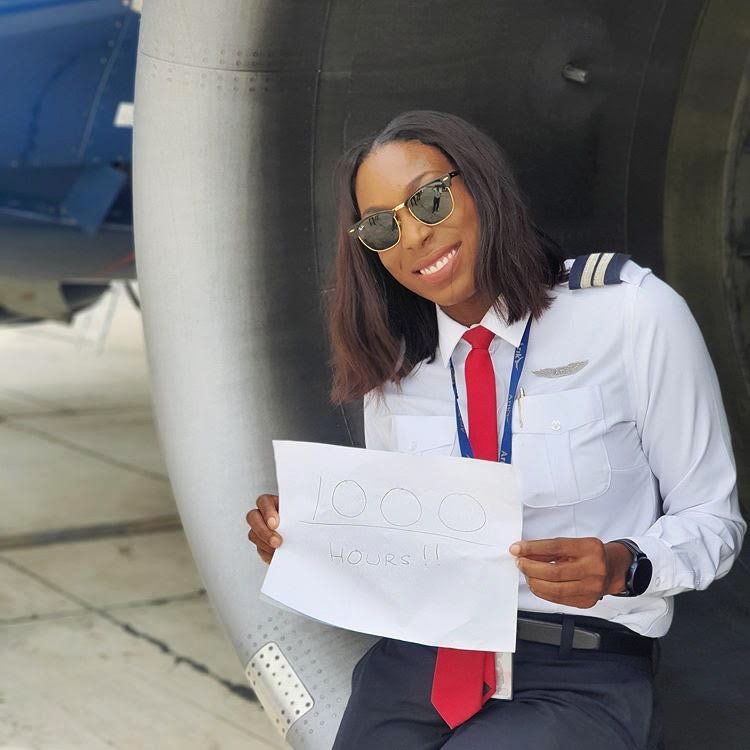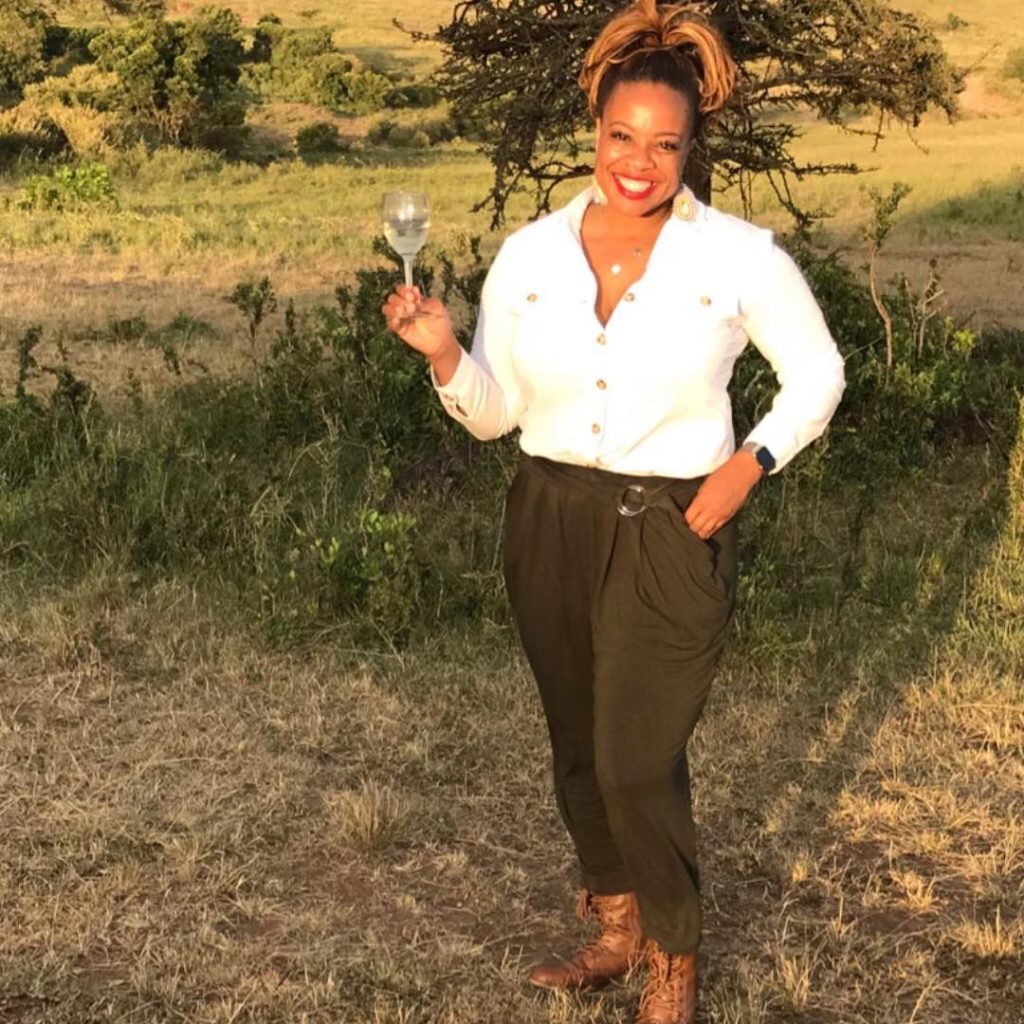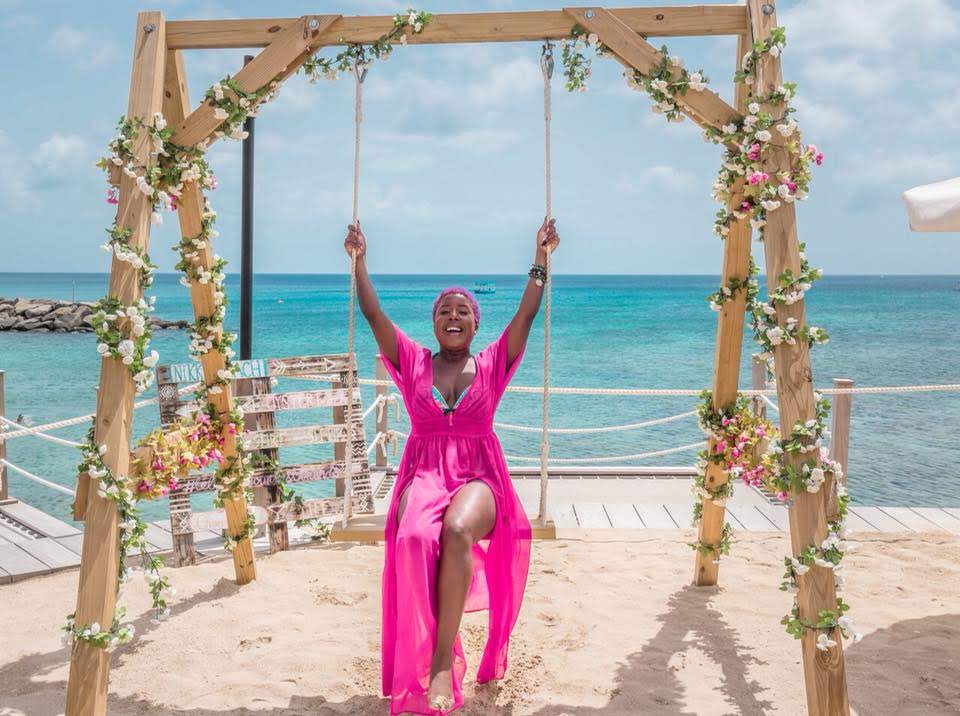Black women have charted a travel path that includes everything from exploration and expatriation to building luxury businesses and high-quality experiences. However, the travel industry has much work to do when it comes to supporting and honoring Black women, even while the reality of Black people traveling the world and doing dynamic things across the industry is nothing new. As industry professionals and Black travelers continue to hold the industry accountable by showing up and speaking out, we spoke to three Black women in travel—a pilot and two business owners—about visibility, equality, and growth in their respective corners of the industry.
“You carry all Black pilots with you”
Isi Collins is a first officer pilot working at an airline in Lagos, Nigeria. Yet back when she completed her flight training in the United Kingdom and the United States, she realized that finding opportunities as a newly trained pilot would be a challenge.
“The aviation industry is estimated to have only 7 percent women pilots and I’ve seen estimates at around 2 percent for Black pilots. So for Black women, I’d imagine that to be less than half a percentage point,” says Collins. “I’ve never seen one in the European aviation sphere and I have friends at major airlines who have also never seen one at their companies.”

Pilot Isi CollinsCourtesy Isi Collins
Becoming a pilot is not an easy task and requires rigorous training, tests, and certifications. In addition to that, the cost of attending aviation school is nearly $100,000—another barrier for Black women who do not have a disposable income, which Collins says, leads many to use their homes as collateral because banks don’t offer unsecured loans for pilot training. Even aviation initiatives specifically targeted at women, like the The Amy Johnson Initiative, appear exclusionary by readily depicting white women in pilot roles. And once they do find those roles, Black women pilots face the additional challenge of gaining respect from their peers.
“The problem with being a female pilot is that you represent all women every time you go to work,” says Collins. “If one female pilot makes a mistake then ‘all female pilots are terrible.’ It’s the same being a Black pilot. You carry all Black pilots with you. Imagine being Black and a woman? There is much work that needs to be done, which includes representation and initiatives to entice women—or even just to let them know that this career is an option for them. I’ve seen airlines run future pilot/cabin crew days where all of the little boys get pilot uniforms and all of the girls get cabin crew uniforms. The sexism is so ingrained that people are shocked to know that I am a pilot because they automatically assume I am in the cabin crew.”
“It feels like I’m a unicorn”
Feeling like you’re obsolete as a Black woman in the travel industry forces many to create their own platforms and businesses that cater to Black travelers—who generate billions of dollars in tourism each year. (The Mandela Research Firm estimated that Black travelers spent over $63 billion by the end of 2018—a nearly $15 billion increase from 2010.)

Entrepreneur Claire SoaresCourtesy Claire Soares
Luxury travel brand Up in the Air Life was created by Claire Soares, who grew frustrated with the lack of high-end luxury spaces in the U.S. that appealed to Black travelers. Her company has taken Black travelers to over 25 destinations around the world, including Brazil, Tanzania, Singapore, France, and China, creating experiences that cater to her clients’ interest in history and culture, food and wine, yachting, and exploring the continent of Africa.
“Being Black in the luxury space is a constant oxymoron. Luxury in itself is not a word that is synonymous with Black people. However, when I speak up and describe the feeling and experience, it is indeed something that a lot of Black people can connect to. I enjoy being able to spoil our travelers and share the very best since we aren’t always treated the best at home,” says Soares. “Our trips take Black travelers to places they never imagined, while [being] treated like the kings and queens they are. But when I network with the luxury travel space it feels like I’m a unicorn and often not taken seriously.”
Up in the Air Life’s revenue, however, “speaks for itself,” Experiences, which are priced anywhere between $3,500 and $15,000 per person, regularly sell out—and quickly. It’s proof that Black travel is not just a marketing niche but a valued lifestyle, and not just one on a budget.
“Up in the Air Life allowed me to lean in to who I was as a young Black woman who enjoyed celebrating a thirst for life and a quest for luxury,” says Soares. “I have connected with thousands of clients who want the same. Our Antarctica trip was close to 40 people and did almost over a half a million dollars in revenue. We sold over half of that in one day.”
“I create what is missing and never become distracted”
The numbers alone dispel any notion that Black travelers will not pay top-dollar for trips. But it also raises questions about how Black women entrepreneurs are treated when presenting multi-million dollar business ideas and concepts to those who may not have the same context.
Danny Rivers-Mitchell, founder and CEO of Black Girls Travel Too, which creates self-empowering travel experiences for Black women through a mission of togetherness, says that the key to that self-empowerment is providing much-needed representation for Black women across the industry. Not just through a mere mention of diversity within a business’s values statement, but in marketing materials as well, by providing platforms for Black women to speak at travel conferences, and having C-suite level executives who mirror a demographic that consistently spends on travel.

Black Girls Travel Too founder Danny Rivers-MitchellCourtesy Danny Rivers-Mitchell
“Limited visibility of Black faces within certain industries is the norm, especially when it comes to the negotiations of money and making decisions. Walking into various establishments and presenting myself as not only in the travel and tourism industry but the founder and CEO of a prominent brand may be a surprise to some, but for me, I own my access, as if I belong there,” says River-Mitchell.
Her power as a business owner lies in her refusal to be diminished by those unwilling to recognize what she brings into the space. Not only do Black Girls Travel Too trips allow participants to be among the locals, try new cuisines, and learn new languages, they work to bridge a gap between having privilege and using that privilege to positively impact global communities and economies.
“Brands who partner with us to provide a desirable product assist in the ability of Black Girls Travel Too rewriting the narrative for the Black community,” says River-Mitchell. “And for those who don’t, we build around them. I create what is missing and never become distracted [when] I don’t see faces that look like me. In fact, that fires me up to create more rooms and opportunities for Black progression unapologetically.”
Article Credit: cntraveler
